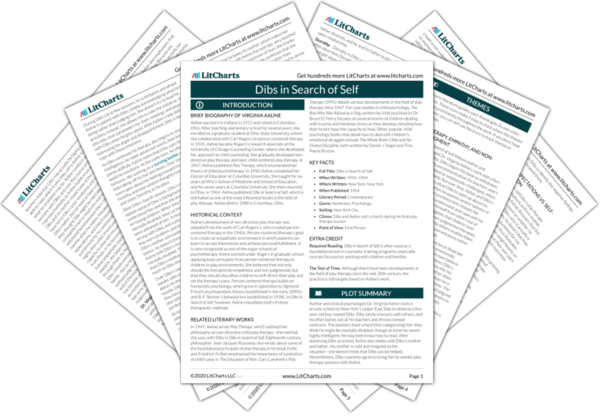Dibs’s mother’s terror at the thought of being interviewed hints at what she will later reveal about a previous experience that she had with psychiatrists. She doesn’t want to be judged or evaluated for her parenting as she was in that instance. Axline connects Dibs’s mother to Dibs, demonstrating how Dibs’s mother is similarly anxious about being judged. Ironically, Dibs’s mother then demonstrates how she constantly judges Dibs by comparing him to his “perfect” sister.
